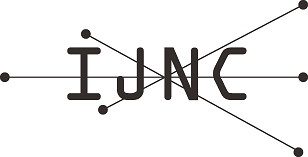Efficient Implementation of FDFM Approach for Euclidean Algorithms on the FPGA
Abstract
The FDFM (Few DSP slices and Few block Memories) approach is an efficient approach which implements a processor core executing a particular algorithm using few DSP slices and few block RAMs in a single FPGA. Since a processor core based on the FDFM approach uses few hardware resources, hundreds of processor cores working in parallel can be implemented in an FPGA. The main contribution of this paper is to develop a processor core that executes Euclidean algorithm computing the GCD (Greatest Common Divisor) of two large numbers in an FPGA. This processor core that we call GCD processor core uses only one DSP slice and one block RAM, and 1280 GCD processors can be implemented in a Xilinx Virtex-7 family FPGA XC7VX485T-2. The experimental results show that the performance of this FPGA implementation using 1280 GCD processor cores is 0.0904us per one GCD computation for two 1024-bit integers. Quite surprisingly, it is 3.8 times faster than the best GPU implementation and 316 times faster than a sequential implementation on the Intel Xeon CPU.
Keywords
GCD; FPGA; DSP slice; block RAM; Euclidean
Full Text:
PDFRefbacks
- There are currently no refbacks.
